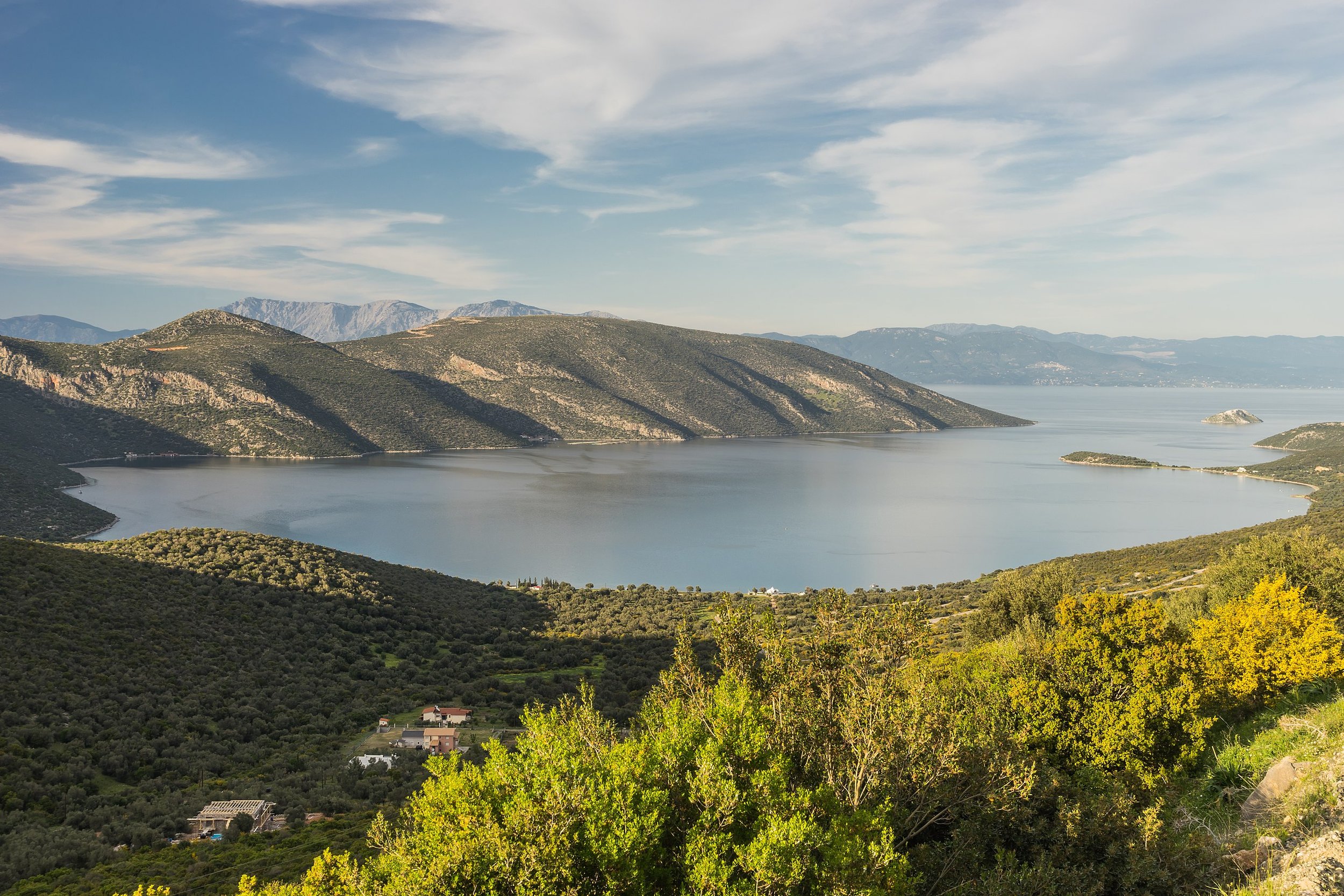
Central Greece
Government Structure and Role
Population: 555,960 (2019)
GDP: €8.8 billion / US$9.5 billion
Geographic area (sq miles/kilometers):
15,550 km² / 6,004 sq mi
Major economic sectors: Agriculture, Tourism, and Manufacturing
Government size – number of employees: 800
Governments & Jurisdictions: 25 municipalities, both urban and rural areas within 5 regional units: Evia, Evrytania, Fokida, Fthiotida and Viotia.
Governance on Climate Change
Key laws and strategies
Central Greece (ROCG), in alignment with its commitments to reducing greenhouse gas emissions by 55% by 2030 and achieving climate neutrality by 2050, has established several programs, strategies, and laws to drive climate change mitigation and adaptation efforts. These include:
Regional Strategy for Energy and Climate 2021-2030
Regional Climate Law 4933/2022
Regional Energy and Climate Action Plan 2021-2030, which collectively provide a framework for the region's climate goals
Climate Change Strategy for the period 2021-2030, focusing on greenhouse gas emission mitigation, climate change adaptation, and enhancing awareness of climate issues
For Open Forests (LIFE11 2007-2013, 2012-2017): This project aimed to conserve biodiversity in forests in Central Greece. ROCG successfully implemented a number of measures to improve forest management and protect endangered species.
SILVANUS (Integrated Technological and Information Platform for Wildfire Management: This HORIZON project to help with forest fire management is being used by ROCG to improve forest fire prevention and response in the region.
To implement these strategies, the region is undertaking various projects and initiatives, such as developing renewable energy sources, enhancing energy efficiency in public buildings, safeguarding forests and water resources, and promoting public awareness of climate change. Other key measures that Central Greece is hoping to implement include encouraging the adoption of air conditioners and other heat protection measures, strengthening preparedness to manage heat-related emergencies such as heat stroke incidents, and developing strategies to curtail the escalating demand for energy and water. The Climate Change Strategy serves as a comprehensive roadmap for the region, outlining key objectives and actions to be taken to address the challenges posed by climate change.
Internal governance structure
In Central Greece, the internal governance structure around climate change involves a central team comprising 3 Deputy Governors and around 10 individuals from diverse departments and bodies within the Region. The management team comes from the Regional Governor's Office, the Environment & Spatial Planning Directorate, the Agriculture & Livestock Directorate and the Regional Development Fund, among others. On a national level, Greece's National Committee on Climate Change comprises approximately 30 members representing various sectors, including science, technology, economy, and society. Additionally, coordinating committees have been established by the Greek government to address climate change across sectors such as energy, agriculture, tourism, and urban development. While the size of these committees varies depending on the sector, the overall scale of groups engaged in climate change resilience and adaptation efforts in Greece remains relatively small. However, there has been a noticeable increase in the size of these groups in recent years, reflecting the growing recognition of climate change as a priority issue.
Recognizing the importance of an integrated approach, Central Greece emphasizes both adaptation measures and efforts to reduce greenhouse gas emissions. By mitigating emissions, Central Greece aims to lessen the intensity of climate risks and enhance its adaptive capacity. Moreover, the Central Greece Region works closely with local authorities and stakeholders to ensure effective implementation of adaptation and mitigation measures. Collaborative efforts are essential in achieving the region's climate goals, and the involvement of local communities is crucial for the success of these initiatives.
Recent and Projected Impacts: MCAP Priority Climate Risks
Extreme Heat: Over the past 3-5 years, Central Greece has faced significant climate challenges, including excessive heat. Greece's Mediterranean climate intensifies the impact of extreme heat, leading to health risks, reduced productivity, and increased demand for resources. Central Greece has focused on promoting heat protection measures, improving emergency preparedness, and implementing strategies to conserve energy and water.
Drought: Drought has become increasingly prevalent, affecting agricultural productivity, biodiversity, tourism and water resources. Central Greece has worked on enhancing crop and livestock resilience, improving water management, and implementing fire prevention measures.
Wildfires: Wildfires, exacerbated by climate change, pose threats to lives, property, and ecosystems. Central Greece has prioritized fire preparedness efforts, including prevention measures and post-fire forest restoration strategies.
